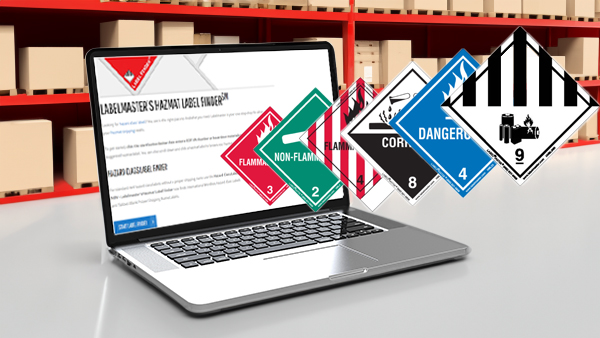In the fast-paced world of Dangerous Goods (DG) compliance, selecting the proper shipping label is essential. Without the right labels, DG shipments will be rejected by regulatory authorities and carriers, creating harmful supply chain delays. However, finding the proper label isn’t always quick or easy. In fact, with numerous label options across nine hazmat classes,…
DGIS Lithium Battery Advisor Helps Streamline and Simplify Air Shipments of Lithium Batteries
Shipping lithium batteries by air is a challenging task for many shippers – followers of our blog are quite aware of the numerous articles we’ve devoted to the topic over the past several years. While the regulations that have been enacted help guarantee the safety of shippers, carriers and the public, their complex nature is…
DG Digest: New Information Collection Request (ICR) Proposal From OSHA Regarding the Lead Standard
This coming week will bring the official start of spring—no doubt we’re all happy about that! Meanwhile, we need to start preparing our facilities for the spring storm season in much of the country. Be sure that your emergency shelter plans and areas are ready and your employees are trained to respond to warnings correctly.…
Shipping lithium battery devices or other hazmat via USPS? These new rules are effective immediately.
The U.S. Postal Service has announced new final rules, effective immediately, that significantly impact the shipping of lithium batteries and other hazardous materials by mail. USPS cites “a consistent and alarming rise in incidents involving mailed packages of both lithium batteries and other hazmat, including … unlabeled or improperly labeled air-ineligible hazmat being accepted for…
Will PHMSA receive Dangerous Goods research ideas that actually make DG simpler?
PHMSA wants you to get creative. As Labelmaster Senior Regulatory Specialist Nikki Burgess, CDGP, DGSA, reported in the July 12 DG Digest, “The agency has posted a Broad Agency Announcement (BAA) to solicit concepts and innovative ideas for leading-edge research and techniques to advance the safe transportation of hazardous materials.” The request specifically covered these…
The ORM-D hazmat mark is being phased out. Here’s its retirement speech.
Starting January 1, 2021, the ORM-D mark will no longer be accepted for Dangerous Goods shipments. Here’s what the mark had to say on the occasion of its retirement from public service. Hello, hazmat shippers and Dangerous Goods professionals everywhere. I’m here to announce my retirement from public service, as my last day on the…
DOT PHMSA Hosts First Lithium Battery Air Safety Advisory Committee Meeting
Last week DOT PHMSA hosted the first Lithium Battery Air Safety Advisory Committee meeting at DOT Headquarters in Washington, D.C., and I had the pleasure of the attending the meeting alongside Labelmaster Services V.P. of Consulting, Pia Jala. Lithium cell and battery production throughout the world continues to grow at an astonishing rate due to…
DG Digest: Semi-annual regulatory agendas & the new PHMSA Lithium Battery Committee
The final DG Digest of 2019 finds regulatory activity at a surprisingly high and extensive level for the holiday period; it’s usually a slow time, but not this year! 2019 is over; what will 2020 bring to the regulatory scene? Perhaps the biggest unresolved question in the United States remains the final status of the…
DOT’s Check the Box making progress against undeclared Dangerous Goods
Hazardous Matt is on a roll, and the “plain brown box” is in retreat. This time last year we took a first look at the U.S. Department of Transportation’s Check the Box program, a multimedia campaign that addresses the ongoing problem of undeclared Dangerous Goods—also known as the “plain brown box.” The star of the…
How much do new civil penalties for hazmat violations actually cost you?
As Labelmaster Staff Regulatory Specialist Nikki Burgess reported a couple of weeks back, many federal agencies recently raised their civil penalties about 2.5% for Dangerous Goods regulatory citations. In other words, any compliance errors you make will now cost you a little more. Update! On October 29, 2019, penalties at many agencies were increased an…







